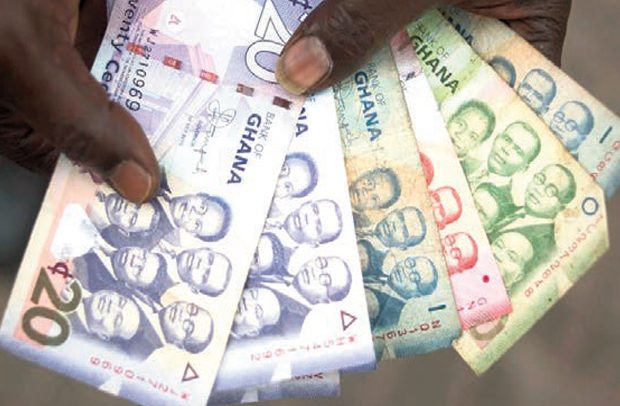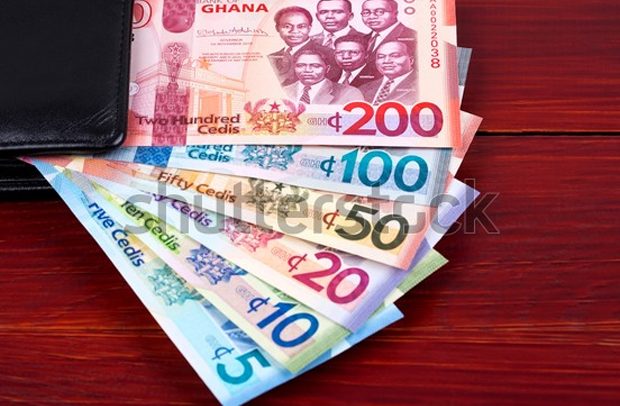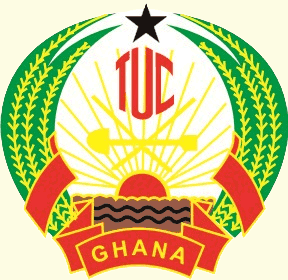
The cedi outperformed the U.S dollar and the euro but depreciated versus the British pound at the close of trading in the week ending April 21. It recorded a 1.13 per cent appreciation against the U.S. dollar as investors languished over weaker-than-expected economic data in the world’s largest economy.
As a result, the local currency exchanged at GH¢4.16 versus the dollar, reflecting a year-to-date appreciation of 0.89 per cent.
The British pound witnessed a significant boost on the international currency market in the early trading sessions of the week, following UK’s Prime Minister, Theresa May’s, quest for an early general election.
The pound, on account of this development, clocked a weekly appreciation of 0.89 per cent despite market anticipation of a slower consumer spending for the month of March. The cedi traded at GH¢5.32 per a pound, lifting its year-to-date depreciation to 2.36 per cent.
Owing to the Euro’s fragility on the international currency market due to political uncertainties associated with the upcoming French presidential elections, the Ghana cedi steadied against the 19-bloc currency to appreciate by 0.59 per cent. The euro could have suffered a significant fall as investor uncertainties subdued following a poll which showed that investors’ preferred candidate was in the lead.
The Ghana cedi traded at GH¢4.45 per the euro to reduce its year-to-date depreciation to 0.27 per cent.

T-bill rates drop
The yield on the Government of Ghana short-dated treasury securities eased significantly at last Friday’s auction. The rate on the 91-Day T/Bill softened by 91 basis points (bps) to 15.44 per cent and that of the 182-Day T/Bill also declined by 0.23 bps to 1647 per cent.
The GH¢1.467 billion worth of bids tendered in the week’s auction by investors had only GH¢1.02 billion purchased by the government.
Overall, the week’s target of GH¢992 million was overachieved by GH¢25.26 million.
At the next auction, which falls on 28th April, the government expects to raise GH¢1.13 billion from the 91-Day and 182-Day treasury securities and GH¢300 from the one-year fixed note.
In spite of the rate adjustment witnessed on the short-dated treasury securities, the term structure of interest rate failed to assume a regular yield curve. To attain a regular in the yield curve, demand for and supply of the five-year bond needs a relook.

Stock market
Trading on the Ghana Stock Exchange (GSE) registered a positive weekly gain although the recent bullish sentiments seem to be waning as the first half trading sessions registered losses.
The GSE Composite Index showed an uptick by 0.20 per cent to settle at 1,885.76 points, reflecting a year-to-date return of 11.64 per cent. The GSE Financial Stock Index also advanced by 0.29 per cent to 1,786.81 points, corresponding to a year-to-date return of 15.62 per cent.
At the closing bell, total traded volume stood at 1.81 million shares, representing 24.61 per cent reduction from the previous week’s volume of 2.40 million shares.
The week’s total trade was valued at GH¢1.64 million.
Liquidity on the bourse was mainly driven by Ecobank Transnational Incorporated, Societe Generale Ghana Ltd, Total Petroleum Ltd, UT Bank Ltd and Starwin Product Ltd. They jointly accounted for 90.99 per cent of the total traded volume.
Market capitalisation, as a result, declined by 0.36 per cent as it moved from GH¢48.96 million last week to GH¢48.78 million in the trading week.
Price movements
Fourteen equities, consisting of six advancers and eight laggards, witnessed price movements in the week’s trading session.
On the list of advancers, the market saw Ecobank Ghana Ltd increasing by 24 pesewas to trade at GH¢7.55 per share.
Benso Oil Palm Plantation rose by 20 pesewas to close at GH¢3.21 per share.
Ghana Oil Company added two pesewas to trade at GH¢1.32 per share. Other advancers, including Fan Milk Ltd, Standard Chartered Bank Ltd and UT Bank Ltd, gained a pesewa each to close at GH¢11.32, GH¢15.83 and six pesewas per share respectively.
Commodity market
Brent crude declined by US$3.91 week-on-week in spite of signs of declining oil supplies on the international commodities market amidst supply cut by top exporters.
The price of the energy commodity slipped on accounts of recent attack on Paris and concerns of rising oil inventories in the U.S. The price of Brent crude tumbled to trade at US$51.98 per barrel. However, the price of the commodity is expected to bounce back following significant production cut in oil inventories.
Gold witnessed a marginal weekly decline of 0.12 per cent as the effect of the declining U.S treasuries on the dollar began to fade.
Investor uncertainties from recent attacks and upcoming presidential election caused upsurges in Gold during the mid-week trading sessions only for the yellow metal to succumb to price declines in the last trading days of the week as the greenback tumbled. Price of Gold settled at $1,287.00 per ounce.
Cocoa price suffered a mild weekly loss as exporters and grinders of the commodity in top producer Ivory Coast rejected large volumes of the beans. Poor quality of the beans compelled exporters and grinders to reject the supplies from farmers. The development hampered the fortunes of the soft-crop as it ended the week lower, down by $35.00 to trade at $1,844.00 per metric tonne.
The cedi outperformed the U.S dollar and the euro but depreciated versus the British pound at the close of trading in the week ending April 21. It recorded a 1.13 per cent appreciation against the U.S. dollar as investors languished over weaker-than-expected economic data in the world’s largest economy.
Read Full Story














Facebook
Twitter
Pinterest
Instagram
Google+
YouTube
LinkedIn
RSS